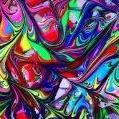-
Welcome to the eG Forums, a service of the eGullet Society for Culinary Arts & Letters. The Society is a 501(c)3 not-for-profit organization dedicated to the advancement of the culinary arts. These advertising-free forums are provided free of charge through donations from Society members. Anyone may read the forums, but to post you must create a free account.
-
Similar Content
-
- 83 replies
- 4,342 views
-
Baker's/Bread Couche 1 2
By rob7,
- 35 replies
- 15,077 views
-
- 3,512 replies
- 347,849 views
-
- 405 replies
- 93,962 views
-
- 4 replies
- 714 views
-
-
Recently Browsing 0 members
- No registered users viewing this page.



Recommended Posts